
During the last 5 years, COMPAR-EU has identified, compared, and ranked the most effective and cost-effective self-management interventions (SMIs) for adults in Europe living with one of the four high-priority chronic conditions: type 2 diabetes, obesity, chronic obstructive pulmonary disease, and heart failure.
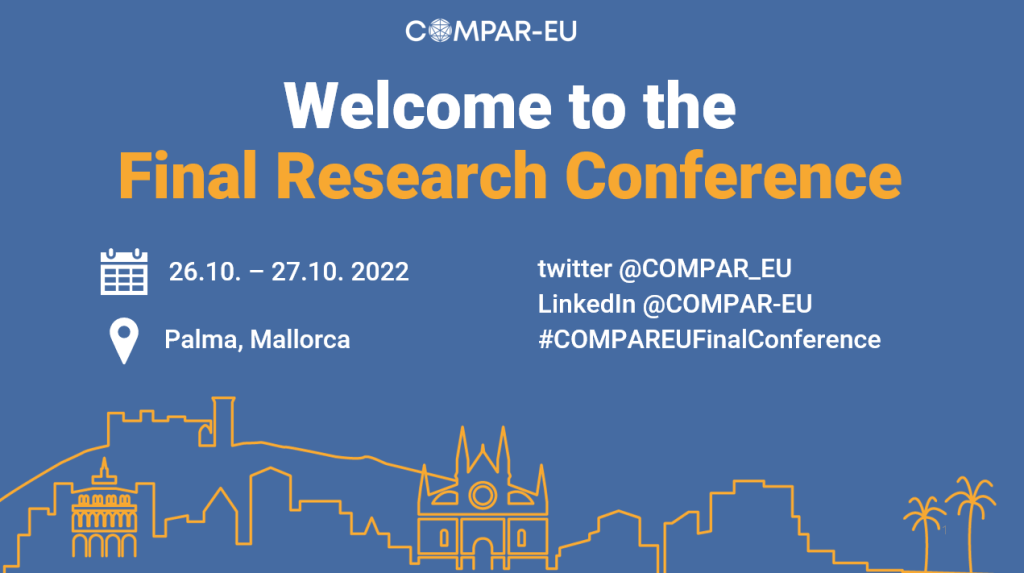
The main objective of the conference was to present the key findings of the project, and to release and promote the COMPAR-EU platform, the main product of this research project. This innovative platform includes: a repository of the studies assessed, and the tools used to measure the different outcomes on the four chronic conditions, the network-meta-analysis results, the contextual factors, and the cost-effectiveness analyses, as well as the decision-making tools. These tools designed for patients, clinicians and other stakeholders; and they include summary of finding tables, evidence to decision frameworks, and a decision aid.
Poster Session
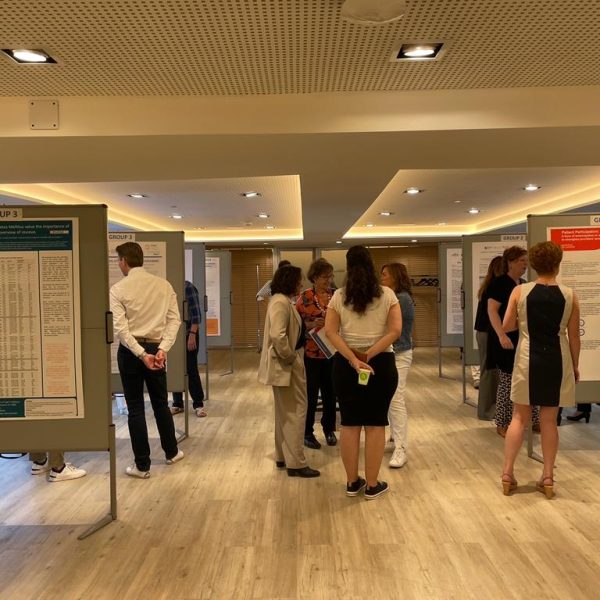
The conference started with a poster session. The scientific committee accepted a total of 20 posters representing institutions from Croatia, Germany, Greece, Spain, Switzerland, and The Netherlands, which were divided in three sections: Methods in self-management interventions (SMIs), Self-management interventions research involving stakeholders perspectives, and Evaluation and implementation of (components of) self-management interventions. The authors of posters attending the conference presented their works to the judges and the attendees.
The three winners are: Sofia Tsokani, Ana Isabel Gonzalez González and Melixa Medina Aedo!
Opening by Rosa Suñol and Asun Sanchez
After the poster presentations, we had the special welcome opening by Dr. Rosa Suñol, President of the Board of Trustees of the Avedis Donabedian Research Institute (FAD), and Asun Sanchez, General Director of health research training and accreditation, from the Health Department of the Balearic Government, who highlighted the importance and benefits of self-management, not just for increase the quality of life of patients, but also for healthcare professionals and for the entire healthcare system.
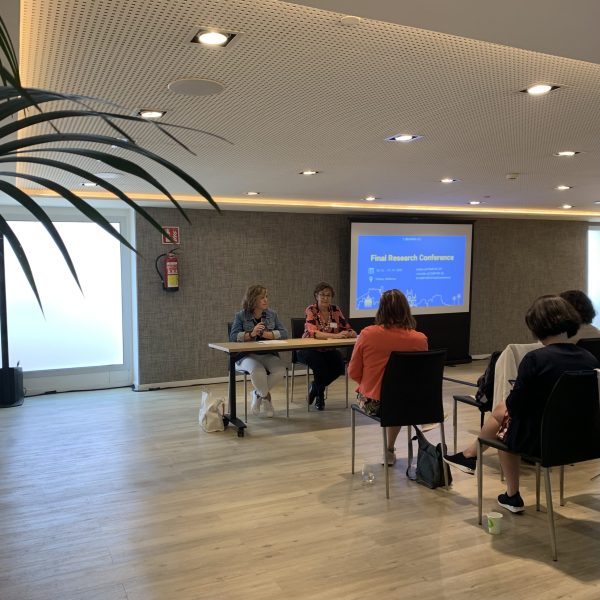
Keynote
Using the Behaviour Change Wheel approach to increase physical activity and break up sitting for the benefit of cardiovascular disease risk and mental wellbeing
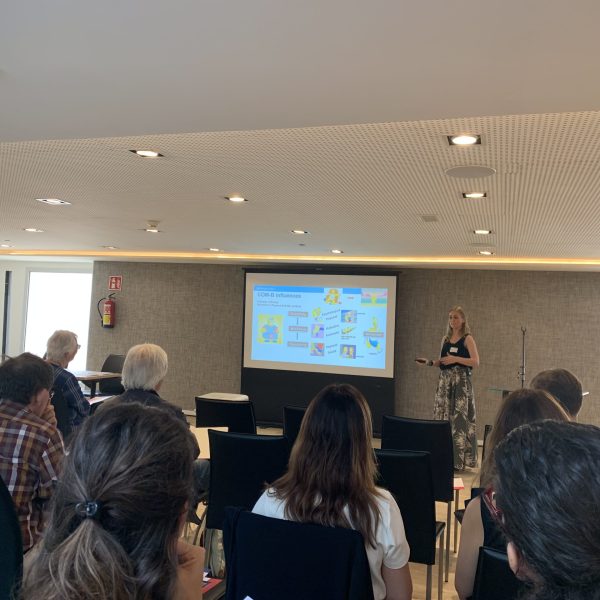
Then, we had the honour of listening to a talk by Dr. Angel Chater, from the University College London and the University of Bedfordshire, introducing key aspects to achieve a change of behaviour increasing physical activity, and presenting the programme “The active Herts”, in which physical activity offers are tailored to the needs of local people. After this introductory speech, we concentrated on the conclusions of all partners that worked on this project.
On the first day, FAD, European Patient forum (EPF), Netherlands Institute for Health Services Research (NIVEL), University of Ioannina (UOI), Institute for Medical Technology Assessment (iMTA) and the Institut de recerca del Hospital de la Santa Creu i Sant Pau (IR-HSCSP) presented the main results from the different work packages, including the taxonomy, the core-outcome-sets, the promising self-management interventions and components based on the NMA and economic estimations for cost-effective interventions. The outputs produced by these work packages have been integrated into the platform to facilitate reaching different stakeholders. Several challenges have been presented related with the review, including large heterogeneity among the studies and lack of relevant data to perform some of the analysis. Some recommendations for further research were provided.
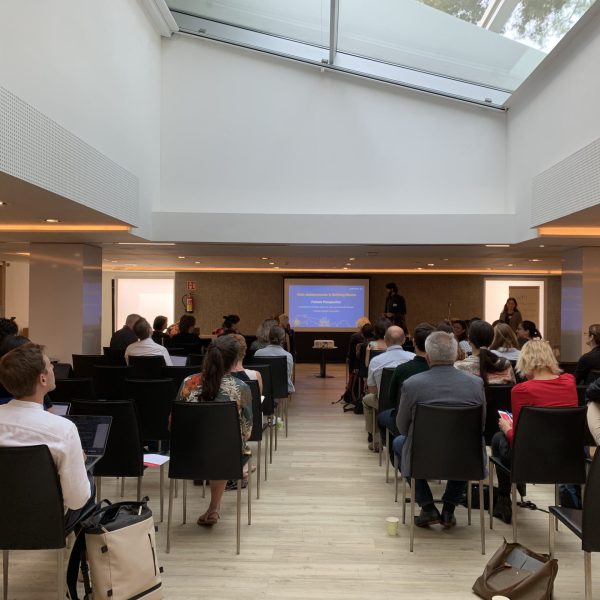
COMPAR-EU platform: interactive workshop
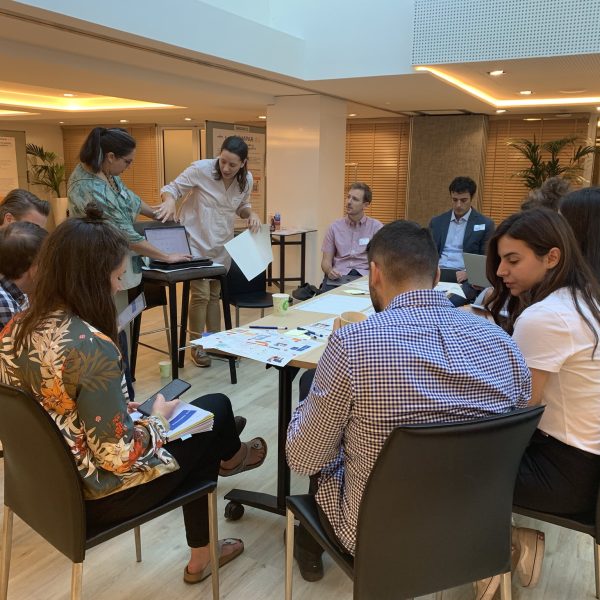
After this, the attendees participated in a workshop that showed the main features of three of the main sections of the platform: the Repository of documents, the Recommendation section, and the Decision Aids. Participants were able to explore the platform on their laptops or smartphones, and feedback was collected. This led us to an open discussion, guided by OptiMedis, who also presented the next steps about the implementation of the platform; concluding that a successful implementation would require changes at different levels, and the support of the recent initiative Self-management Europe could help to increase the platform value.
Keynote
Self-management in Europe: what have we learnt and what should we do next?
To finalise the conference, Dr Angela Coulter gave a keynote speech titled “Self-management in Europe: what have we learnt and what should we do next?”, in which she highlighted three main points:
- Self-management support should be guided by the evidence but personalised to the individual;
- Implementation involves leadership, infrastructure and demonstration; and
- Evaluation should take place alongside implementation, formative as well as summative.
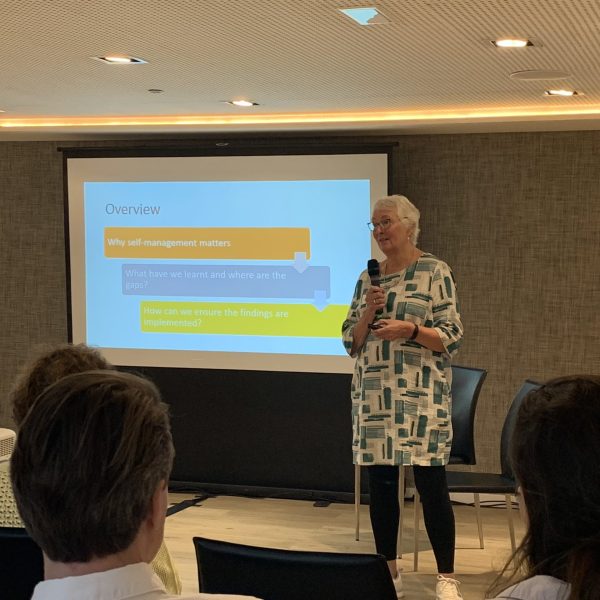
What’s next?
The consortium has concluded a long journey through these five years, with a large amount of work done. We have found where research gaps persist on self-management interventions’ research, and through the platform, we are now providing these findings to the scientific community, as well as the rest of the stakeholders, that can also make use of the interactive decision-making tools.
Through all this work we have also recognised that if our objective is patient involvement and empowerment, our job does not stop here; this is just the beginning. We must keep working to provide patients with the tools to achieve an appropriate self-management of their diseases, as in the words of a patient panellist, “Patients need to know how to recognise when something is going wrong and what to do, they will not have their good doctor or nurse a lifetime”.
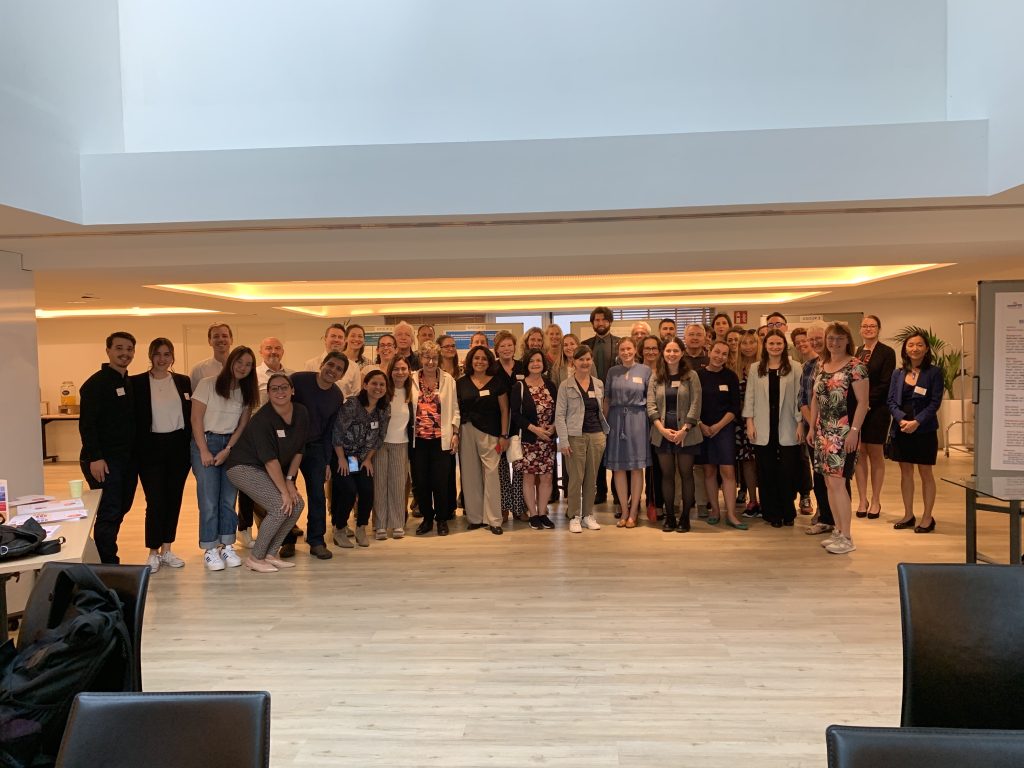

Melixa Medina-Aedo
Melixa Medina-Aedo is a nurse with a master’s degree in research methodology and works as a research technician at the IR-HSCSP. She has broad clinical experience working with patients and carers with chronic diseases and in the COMPAR-EU project she has led the management of the expert panels for the development of recommendations on SMIs for the four chronic conditions.